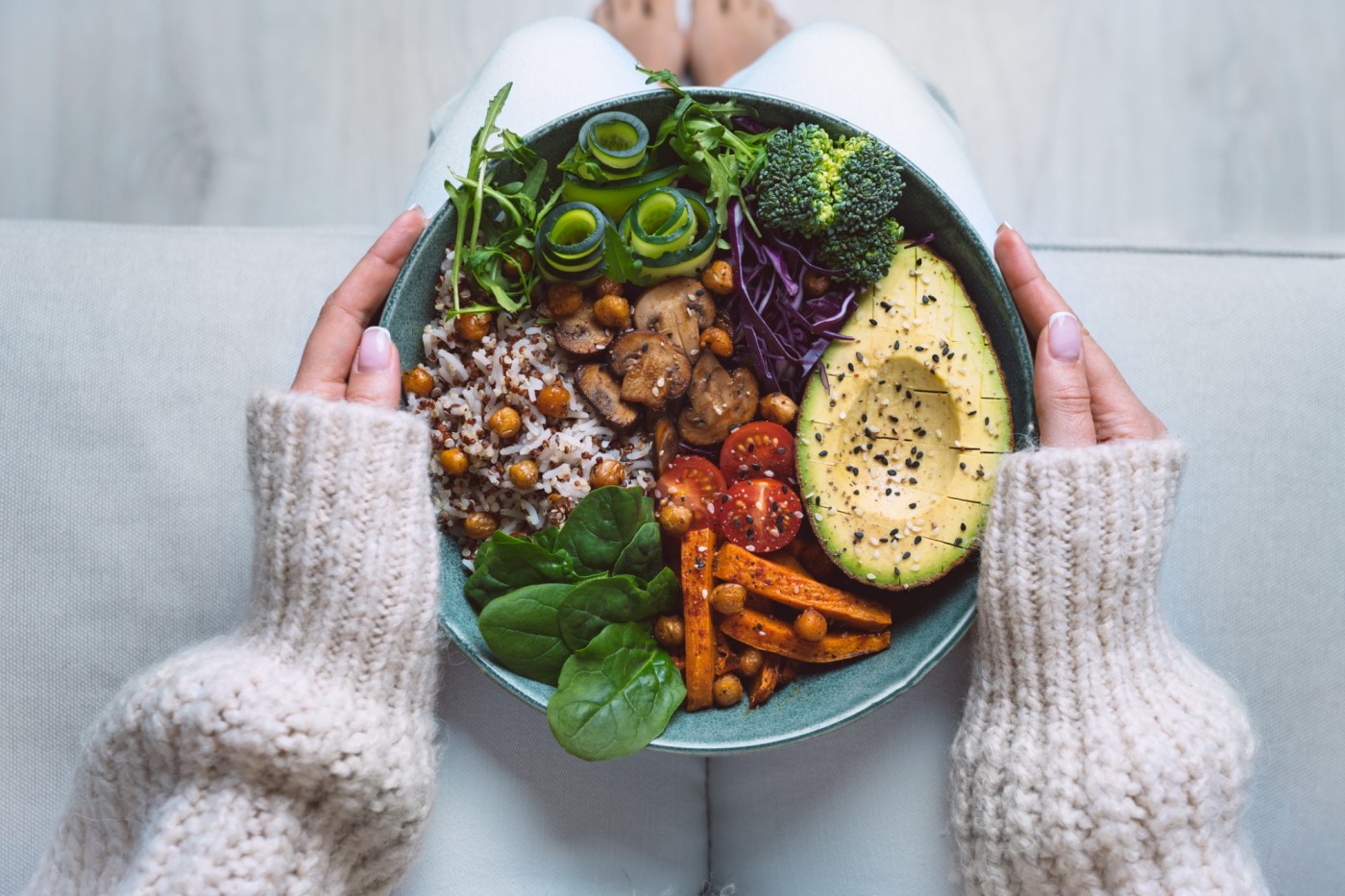
What you should know about healthy eating after watching ‘You Are What You Eat’
Maybe you have already watched the show, “You Are What You Eat: A Twin Experiment.” This new documentary-style Netflix show is based on the Stanford twin nutrition study, a pioneering research study led by Dr. Christopher Gardner. Gardner and his team aimed to compare the cardiometabolic effects of an omnivore diet and a vegan diet.
This eight-week study, which was published in JAMA in November 2023, was conducted on 22 pairs of identical twins. During the study, one twin from each pair was matched with either a vegan or an omnivore diet. Because twins are genetically identical, researchers were able to gain important insights into the impacts of each diet, which would not be possible if studying non-twins with differing genetics. Plus, twins who have typically spent much of their lives growing up together have environmental and lifestyle factors in common.
Both study diets were considered healthful, consisting of vegetables, beans, fruit and whole grains with minimal sugar and refined foods. While the vegan diet was entirely plant-based with no animal products, the omnivore diet included chicken, fish, eggs, cheese and other animal products.
During the first four weeks of the study, all of the participants’ meals were provided by the study through a meal delivery service. For the remaining four weeks, the participants prepared their own meals consistent with their prescribed diet. Researchers meticulously monitored their physiological responses, while participants kept a food log. In the show, the researchers discuss monitoring indicators of cardiovascular and metabolic health as well as the biological clock and gut microbiome. These are all currently hot topics in the field of nutrition.
The most profound improvements were seen during the first four weeks of the study. Those on a vegan diet had significantly lower LDL “bad” cholesterol levels, insulin and body weight compared to those on the omnivore diet. These are factors seen as associated with improved heart health. The vegans, on average, lost 4.2 pounds more than the omnivores. Changes in triglycerides and glucose, for example, were not statistically significant.
Considering that 21 of the initial 22 individuals matched with the vegan diet were able to maintain it throughout the study, the researchers surmised that the study demonstrates that a vegan diet is feasible and those who choose it can improve their long-term health in just four weeks. However, it’s important to point out the support, education, training and food resources provided to the study participants that the average person may not be able to access.
Related Articles
Quick Fix: Vegetable creole
I saved $800 in 5 months by eating more plants
Vegetable Creole packed with vibrant flavors
Instant Pot makes chicken noodle soup a snap
Pomegranate adds pop to pork tenderloin
The show spends a considerable amount of time discussing the United States food system including the detriments of animal and fish factory farming. While the show dives into the health benefits of eating plants and reducing the intake of animal products, it does not discuss the nutritional value of animal products. To some viewers, it might appear as though the investigation is biased in favor of a plant-based diet.
Ultimately, the Stanford twin nutrition study, while relatively short and small, was unique in that it used pairs of identical twins to control for genetics and lifestyle in order to better compare the cardiometobolic health effects of two diets. It’s clear from both the Stanford twin nutrition study and other studies on plant-based diets that eating more plant foods is beneficial for health and longevity. For those interested in taking the leap to be plant-based, whether for health or environmental reasons, this show might just give you a push to take the leap.
LeeAnn Weintraub, MPH, RD is a registered dietitian, providing nutrition counseling and consulting to individuals, families and organizations. She can be reached by email at RD@halfacup.com.


